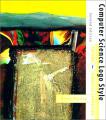
Basic Lisp Techniques
by David J. Cooper, Jr.
Publisher: Franz Inc. 2003
Number of pages: 100
Description:
The purpose of this book is to showcase the features that make Common Lisp so much better than Perl, Python, Java, C++, C#, and to give you a "quick-start" guide for using Common Lisp as a development environment. If you are an experienced programmer in languages other than Lisp, this guide gives you all the tools you need to begin writing Lisp applications. If you've had some exposure to Lisp in the past, this guide will help refresh those memories and shed some new light on CL for you.
Download or read it online for free here:
Download link
(PDF)
Similar books
 LISP 1.5 Primer
LISP 1.5 Primerby Clark Weissman - Dickenson Publishing Company
The chapters of this book expose the reader to the LISP formalism and give him an opportunity to acquire the necessary skills for processing symbolic data. Learning these skills is analogous to learning the rules of arithmetic ...
(7068 views)
 Build Your Own Lisp
Build Your Own Lispby Daniel Holden - buildyourownlisp.com
In this book you'll learn the C programming language, and at the same time learn how to build your very own programming language, a minimal Lisp, in under 1000 lines of code. This book is not suitable as a first programming language book ...
(9612 views)
 Paradigms of Artificial Intelligence Programming
Paradigms of Artificial Intelligence Programmingby Peter Norvig - Morgan Kaufmann
This book is concerned with the field of artificial intelligence, the skill of computer programming and the programming language Common Lisp. Careful readers can expect to come away with an appreciation of the major questions and techniques of AI.
(5378 views)
 Computer Science Logo Style
Computer Science Logo Styleby Brian Harvey - The MIT Press
This series is for people who are interested in computer programming because it's fun. The three volumes use the Logo as the vehicle for an exploration of computer science from the perspective of symbolic computation and artificial intelligence.
(20613 views)